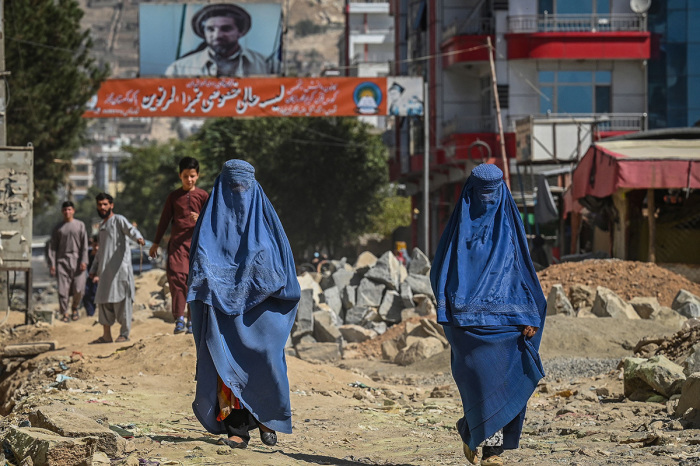Taliban arrests women for 'bad hijab' in dress code crackdown

The Taliban said it has been arresting women in Afghan cities for purportedly wearing a “bad hijab,” a violation of the terrorist group’s strict dress code, which is one of many restrictions imposed on women in that country since it returned to power in 2021.
The radical Islamist regime did not specify the number of women it has arrested, nor did it clarify how it defines a “bad hijab.” Abdul Ghafar Farooq, a spokesperson from the Taliban’s Vice and Virtue Ministry, said it had received complaints for two years about women not wearing the correct hijab.
In a statement to The Associated Press, Farooq said women had been arrested three days ago. According to the spokesperson for the terrorist group, ministry officials had imposed a strict dress code for women, but after they failed to comply the jihadists' orders, female police officers were dispatched to arrest the women.
“These are the few limited women who spread bad hijab in Islamic society,” Farooq claimed. “They violated Islamic values and rituals, and encouraged society and other respected sisters to go for bad hijab.”
The women arrested will be released on strict bail, or the police will refer the matter to judicial authorities, the AP reported. Farooq also warned that women in every province who fail to properly wear a hijab will face arrest.
Shortly after the Taliban regained power following the United States’ withdrawal from Afghanistan in 2021, the group issued a decree in May 2022 requiring women to conceal their faces and wear a full-body covering in public. The decree included punishments for Afghan women's fathers or closest male relatives, who might be fired from their jobs or imprisoned if their female relative does not cover her face outside the home in the manner dictated by the Taliban.
Late last month, the U.N. Security Council adopted a resolution requesting the Secretary-General appoint a Special Envoy for Afghanistan to engage with the Taliban, particularly on human rights and gender.
During a press briefing last Wednesday, U.S. State Department Spokesman Matthew Miller expressed support for the envoy, stating it would allow for international engagement with Afghanistan. The spokesperson said he believes the resolution shows the Taliban and the international community that the U.N. Security Council supports a process to allow Afghanistan into that community by meeting international obligations.
“But I will say, we also remain concerned about the Taliban’s repressive edicts against women and girls and its unwillingness to foster inclusive governance,” Miller stated. “The decisions that it has made risk irreparable damage to Afghanistan’s society and move the Taliban further away from normalizing relations with the international community.”
Human Rights Watch released a 19-page report in December titled "'Schools are Failing Boys Too': The Taliban's Impact on Boys' Education in Afghanistan," which analyzed the impact of the Taliban’s policies and practices.
After interviewing boys and their parents in eight of Afghanistan’s provinces, researchers found "an alarming deterioration in boys' access to education and the quality of their education," driven in part by the Taliban removing female teachers from their jobs and a rise in corporal punishment.
"The curriculum in many schools appears to be under revision to remove important school subjects and promote discrimination," the report read. "The … humanitarian crises in the country has also placed greater demands on school boys."
"These circumstances have led many boys to leave school altogether; those who remain attend classes with few students and sometimes no teachers."
Women are prohibited from seeking a secondary or higher education under Taliban rule, but the report noted that "rights violations extend beyond the severe restrictions imposed on girls' and women's education."
"The Taliban's prohibition of girls from attending secondary school and higher education along with the infliction of serious harms to the system to educate boys is deeply incompatible with international human rights standards and best practices.," the report stated.
Samantha Kamman is a reporter for The Christian Post. She can be reached at: [email protected]. Follow her on Twitter: @Samantha_Kamman




























